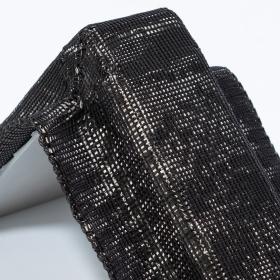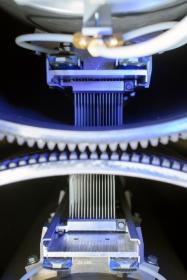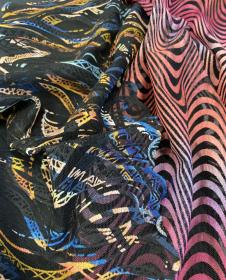Italian Textile Machinery: Drop in orders for 2023 first quarter
The textile machinery orders index for the first quarter of 2023, as processed by the Economics Office of ACIMIT, the Association of Italian Textile Machinery Manufacturers, declined markedly compared to January-March 2022 (-35%). In absolute terms, the index stood at 84.8 points (basis: 2015=100).
This result is mainly due to a reduction in the orders intake recorded by manufacturers on foreign markets. Indeed, foreign orders dropped by 40%, whereas the domestic market showed a 14% increase. The absolute value of the index settled at 78.3 points abroad, while it measured in at 148.1 points in Italy. During this year’s first quarter, booked orders stood at 4.2 months of guaranteed production.
ACIMIT president Alessandro Zucchi stated that, “The order index for the first quarter confirm a trend of the past few quarters, where uncertainty still predominates in global markets, both in terms of a macroeconomic framework that is characterized by a penalizing inflationary trend and ongoing geopolitical tensions. This is a scenario that this does not facilitate investment plans for businesses.”
However, this uncertainty does not appear to affect the sector’s operators, who are nonetheless permeated by a sense of optimism, as is also testified by the positive data drawn from a comparison with orders from the previous quarter (October-December 2022), for which total orders had been slightly on the rise at +3%. Indeed, the president of ACIMIT confirms that, “Manufacturers in our sector don’t lack for work, having filled up on orders last year and are now busy fulfilling them. The forecasts for 2023 remain positive”. Zucchi concluded, “I expect this confirmation of a healthy manufacturing sector to come from ITMA Milan, the world’s premier trade show dedicated to textile and clothing technologies, slated to open on June 8th at the Rho Fiera exhibition spaces. The exhibit will feature over 400 Italian manufacturers, taking up approximately 30% of the entire exhibition space. This figure is in itself a result that confirms the leadership role of Italy’s textile machinery manufacturers”.
ACIMIT





















